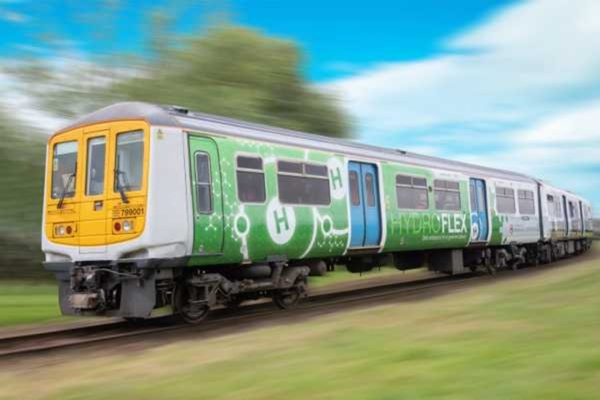Britain’s first hydrogen train has begun trials in the Midlands while Tees Valley in north-east England is announced as the location for the nation’s first hydrogen transport hub.
Trials of the first ever hydrogen powered train on a UK mainline have taken place with plans to retrofit current in-service trains with the technology from 2023 to help deliver on the UK’s net-zero targets.
The trials of the train, known as HydroFlex, follow two years’ development work and more than £1m of investment by both rolling stock solutions provider Porterbrook and the University of Birmingham. The project has also been supported with a £750,000 grant from the Department for Transport (DfT).
Hydrogen hub
Transport secretary Grant Schapps also revealed plans for Tees Valley to become a hydrogen transport hub, bringing together industry and academia with the aim of becoming a global leader in the field and to help create hundreds of green jobs.
“As we continue on our road to a green recovery, we know that to really harness the power of transport to improve our country – and to set a global gold standard – we must truly embed change,” said Schapps.
“That’s why I’m delighted that through our plans to build back better we are embracing the power of hydrogen and the more sustainable, greener forms of transport it will bring.”
To kick start the development in Tees Valley, the DfT has commissioned a masterplan to understand the feasibility of the hub and how it can accelerate the UK’s ambitions in hydrogen.
“With the growing demand to switch to a net zero economy, the advancement of R&D means we can further demonstrate this innovative technology for road, rail, and freight and logistics”
According to the DfT, the masterplan will pave the way for exploring how green hydrogen could power buses, HGV, rail, maritime and aviation transport across the UK. The aim would then be for the region to kick on and become a global leader in industrial research on the subject of hydrogen as a fuel as well as an R&D hub for hydrogen transport more generally, attracting hundreds of jobs and boosting the local economy in the process.
The Government also pledged £6.3m of funding for a green hydrogen refuelling station and 19 hydrogen-powered refuse vehicles in Glasgow as part of its £23m Hydrogen for Transport programme.
“With the growing demand to switch to a net zero economy, the advancement of R&D means we can further demonstrate this innovative technology for road, rail, and freight and logistics as an efficient and economic solution,” said Julian David, CEO, TechUK.
“TechUK is excited to work together with the tech community and the Government to spearhead the market offering for green hydrogen.”
The next stage in the development of HydroFLEX will see the University of Birmingham develop a hydrogen and battery powered module that can be fitted underneath the train, allowing for more space for passengers in the train’s carriage.



